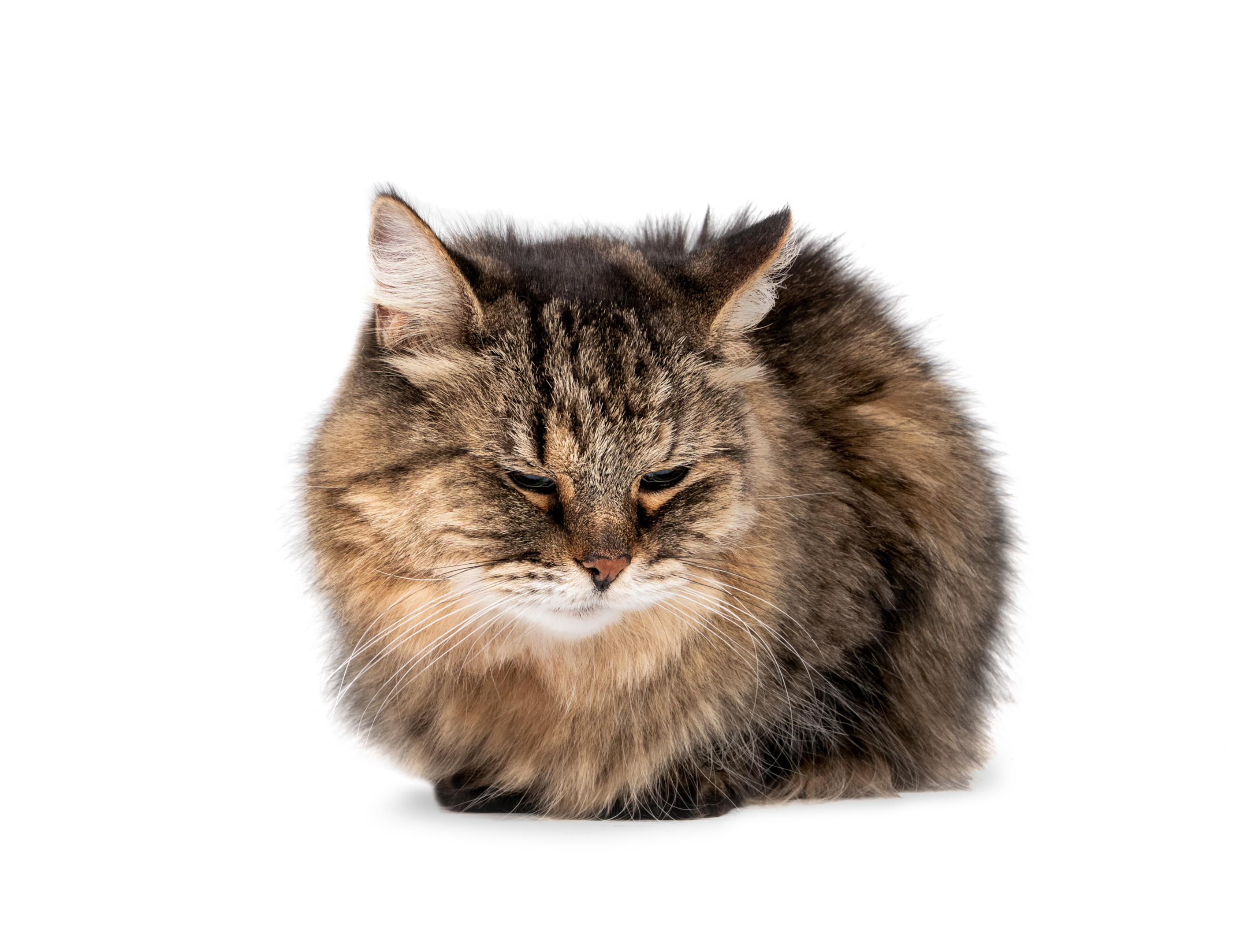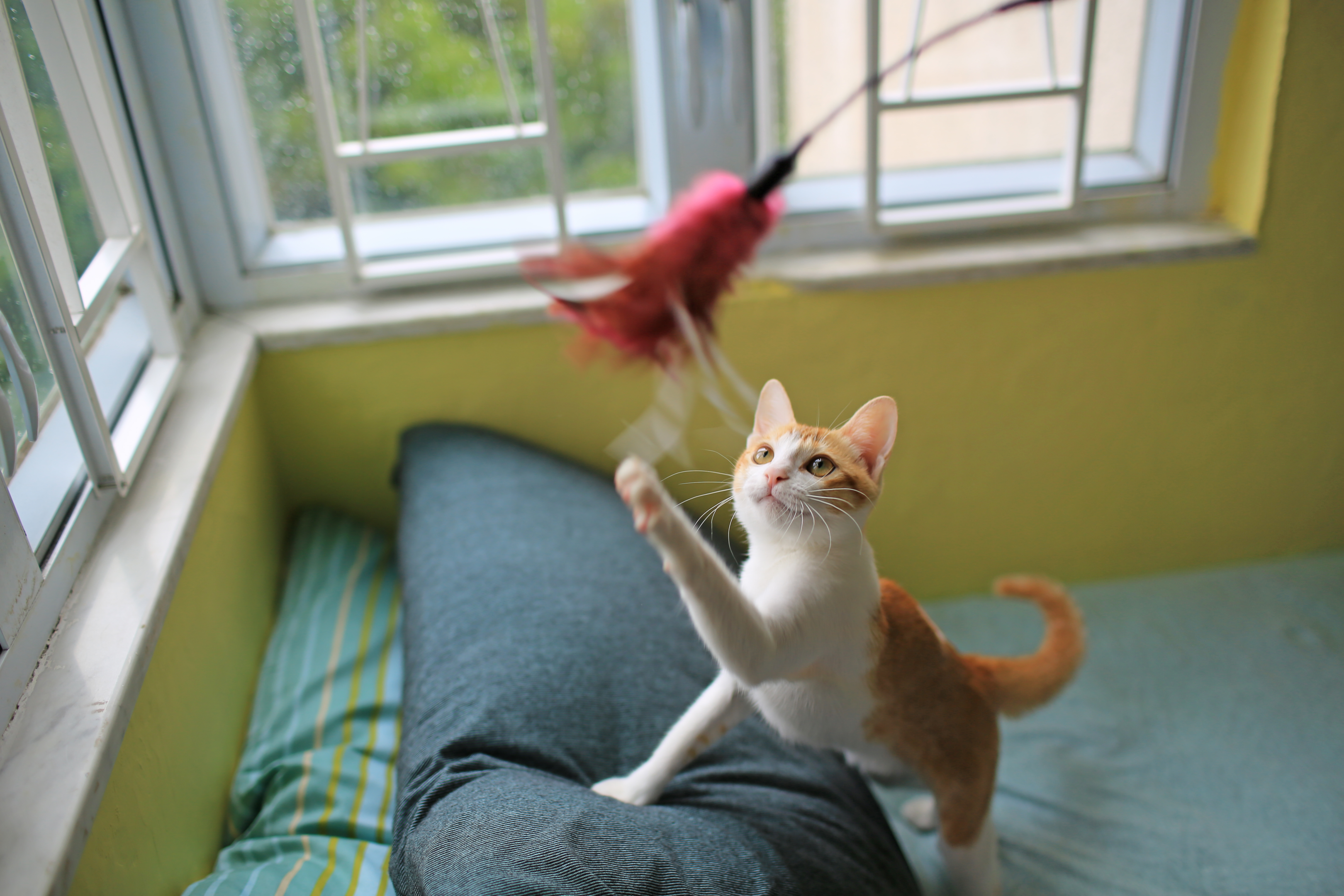
Did you know that over 90% of cats over 12 have signs of arthritis visible on x ray? The scary part is that many arthritic cats do not show obvious signs of pain. As a pet owner, being proactive in managing your cat's health and well-being is essential. While traditional medications and treatments are available for arthritis management, many pet owners prefer natural alternatives to alleviate their cat's arthritis pain without relying on harsh drugs or invasive procedures. In this blog post, we'll explore ten natural supplements that can help support joint health, reduce inflammation, and promote mobility in cats with arthritis. From omega-3 fatty acids to green-lipped mussels, each of these supplements is effective in improving joint function and reducing pain. By incorporating these supplements into your arthritic cat's daily routine, you can help them feel more comfortable, happier, and healthier. So, let's take a closer look at these ten natural strategies and discover how they can make a difference in your cat's life.
What are the clinical signs of arthritis in cats, and can it be prevented?

#1 A Healthy Diet
Diet plays a significant role in the development and management of arthritis. These principles also apply to our cats, as it does to us.
Food for cats with arthritis should contain quality animal based protein and antioxidants such as vitamins C, E, and beta-carotene can help reduce oxidative stress that can lead to arthritis. More importantly, it should not have carbohydrates that lead to Type 2 Diabetes and an unhealthy microbiome. Fiber-rich foods encourage a healthy microbiome.

Leafy greens, broccoli sprouts, and carrots, are excellent sources of antioxidants, and I sneak these into my cat's homemade food. I add complex carbohydrates like pumpkin and winter squash, and I've even snuck some beats in there.
I often get comments from Dr Google wannabe's on my YouTube channel..."cats don't eat this or that. I would never put that in my cat's diet!" That is true in the wild. Instead, cats do eat phytonutrients and fiber from their prey when they ingest fur and fiber from their prey's digestive tract. Same thing with "cats don't eat fish!" Again, they would if they could. What they should not have is the dregs of the fish world that is harvested to put into cat food as it 's probably too laden with toxins for people to eat. We need to give them healthy Omega-3's that they would normally get from their prey that eats a wholesome diet from the food they foraged for, versus the corn that conventionally raised animal eat with an unhealthy fat profile.
#2 Hydration
Keeping your cat hydrated is essential for maintaining joint lubrication and mobility. Wet food and fresh water sources with multiple water dishes, are excellent ways to ensure your cat's diet stays hydrated. Cats with chronic kidney disease should be closely monitored for dehydration which leads to muscle discomfort and oxidative stress that leads to DNA damage which would contribute to arthritic joints.
#3 Weight management and physical activity

A healthy body weight will help prevent degenerative joint disease. Weight loss could be considered an arthritis treatment alone. There is an obesity epidemic in the cat population with over 60% of cats deemed overweight. Maintaining a healthy weight contributes to cartilage health and helps reduce pain. A healthy diet has anti inflammatory effects and contributes to weight loss.
#4 Omega-3 Fatty Acids
Omega-3s are essential fatty acids found in fish oil, that have been shown to reduce inflammation, which can help relieve arthritis pain. Fatty fish such as salmon or sardines, fish oil supplements, are all good sources of omega-3s.

Why can't I give my cat flax oil?
Flax oil has health benefits for humans because we are efficient at transforming the fatty acids in flax to essential Omega 3 fatty acids. Cats and dogs are extremely inefficient at doing this, so it is not a strategy that will help arthritis pain as it will cause your pet to gain weight and will not provide pain relief.
My cat is allergic to fish. Can I use something else?
Although there is very little fish protein in a purified fish oil, and many "allergies" are erroneously diagnosed with bogus serum food allergy tests, not a single one substantiated with studies (despite the crazy amount of money they cost, it certainly has not gone into studies to show they are accurate). Please do. not waste your money. If you don't believe me, try to find a single veterinary dermatologist anywhere in the world that would recommend them.

#5 Chondroitin/Glucosamine/MSM
Joint health is impacted by the quality of the joint fluid, and the health of the cartilage. Arthritis pain is a result of degeneration of the cartilage and loss of the lubricating nature of the joint fluid. The following compounds are usually found in combination in many joint supplements:
Glucosamine is a naturally occurring compound that can help support joint health in overweight cats by providing cushioning for the joints. It's available in supplement form and can be added to your cat's food.
Chondroitin is another compound that can help support joint health by promoting the production of cartilage. It's often combined with glucosamine in supplements.
MSM has anti-inflammatory properties and can help relieve arthritis pain in cats. It's available in supplement form or can be added to your cat's food.
#6 Microlactin/Duralactin
This molecule from the milk of cows inhibits inflammation. Most importantly, it comes as a tasty treat. Make sure you give it at least 2-4 weeks to see an effect, but the studies are promising!

#7 CBD
Although there are many studies of safety and efficacy of CBD in dogs, there is little information available for cats. CBD is listed as a cure for just about anything, we need to ask for evidence when it comes to real pain, especially when it's not our pain, even if it is natural. 100% of the cats experienced ataxia when given CBD with THC. Many of the cats exhibited lethargy. CBD was much better tolerated. With the popularity of CBD, pet parents need to use care when considering its use for their arthritic cat. There are probably better options for pain, but seizures might be a better application. I will continue to give you a viewpoint from both sides of the aisle so stay tuned!
#8 Green lipped mussel extract
Green-lipped mussel is a type of shellfish that contains anti-inflammatory compounds that can help reduce arthritis pain in cats. They contain beneficial Omega-3's and antioxidants and their is definite evidence to support their efficacy.
#9 Homeopathic Zeel (now known as T-Relief Arnica +12)
Homeopathics can be applied to the gums of cats and most cats tolerate them well as it's different than the dreaded swallowing of a pill. There are some studies in Zeel showing benefits in dogs. Unfortunately, we often have to rely on studies in dogs to benefit our kitties who often suffer in pain silently.
#10 Bone Broth
Bone broth is rich in collagen, glucosamine, and chondroitin, which can help support your bones and joint health and reduce arthritis pain. You can make bone broth at home or buy it ready-made.
Consider a customized herbal therapy plan
Turmeric contains curcumin, a potent anti-inflammatory compound that can help reduce arthritis pain in cats. You can add turmeric to your cat's food or give them a supplement that contains curcumin.
Ginger has natural anti-inflammatory properties and can help relieve arthritis pain in cats. You can add fresh ginger to your cat's food or give them a supplement that contains ginger.
Boswellia is an herbal extract that can help reduce inflammation and relieve arthritis pain in cats arthritis. It works by blocking specific enzymes that cause inflammation. It's available in supplement form or can be added to your cat's food.
A customized herbal formula (Western and TCM) is also a consideration. I could go on and on about the benefits of herbs, but it is the rare cat that will tolerate the amount needed to alleviate arthritic cats.
I absolutely cannot give my cat supplements for pain relief. What are some other treatment options?
Adequan (Polysulfated glycosaminoglycans) have strong evidence for efficacy in dogs. It is a biweekly injectable for a short period, then given monthly and has been used off label in cats. You can talk to your veterinarian a newer drug, that is given monthly called Solensia.
Please resort to pain medications such as non-steroidal anti-inflammatories if your cats quality of life is severely compromised with progressive disease, and supplements are not providing adequate pain relief. Even short term, pets in pain need relief so please check with your veterinarian if your cat is a candidate.
Lifestyle and home changes that are helpful include physical therapy, laser therapy, gentle veterinary chiropractic, and even acupuncture. Many cats tolerate acupuncture amazingly well, and if they don't laser therapy can be applied to the same problem areas.
In conclusion, a healthy diet is crucial for both prevention and arthritis management. Cat owners should include foods rich in omega-3s, antioxidants, and essential nutrients. Weight loss reduces the risk of developing arthritis, and alleviates joint disease.
Additionally, it's important to avoid feeding your cat foods that could increase inflammation and exacerbate arthritis symptoms, especially in older cats. Avoid highly processed foods, foods high in carbohydrates, and foods with fillers and artificial ingredients.
In conclusion, diet plays a crucial role in managing and preventing arthritis in cats. By providing them with high-quality proteins, low-sugar carbohydrates, phytonutrients, and essential fatty acids, you can help reduce inflammation and support overall joint health. As always, consult with your veterinarian to develop a personalized nutrition plan that meets your cat's individual needs.
(1) Kulpa JE, Paulionis LJ, Eglit GMI, Vaughn DM. Safety and tolerability of escalating cannabinoid doses in healthy cats. J Feline Med Surg. 2021;23(12):1162-1175.
Dr Dody Tyneway Robi is a holistic veterinarian with over 30 years in practice, and founder of Holistic Vet Blend.











